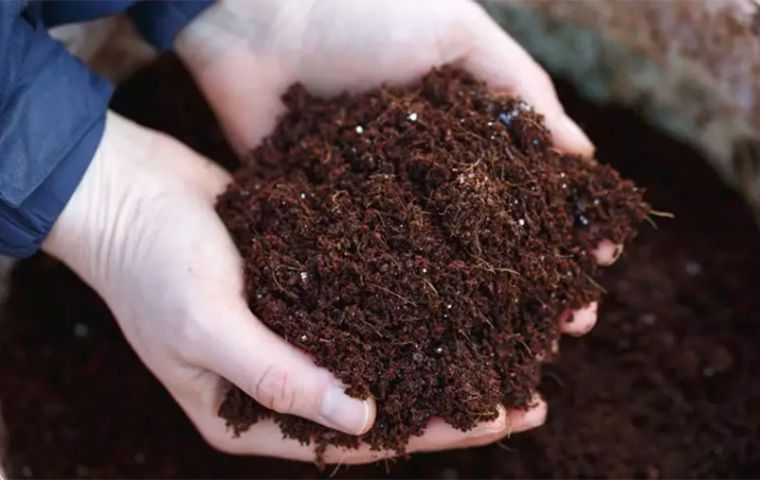MercoPress. South Atlantic News Agency
Sale of peat banned in England from 2024; peat bogs crucial for soaking carbon
 Peat is a layer of carbon-rich soil that forms very slowly in wet, boggy ground. They are sometimes referred to as the UK's rainforests
Peat is a layer of carbon-rich soil that forms very slowly in wet, boggy ground. They are sometimes referred to as the UK's rainforests Sales of peat to amateur gardeners will be banned in England from 2024, the government has confirmed. The move follows a consultation and is part of a pledge to restore peat lands. These wild, boggy places are sometimes referred to as the UK's rainforests, because of their ability to soak up vast quantities of carbon.
When peat dries out it emits rather than stores greenhouse gases, contributing to climate change. Peat is a layer of carbon-rich soil that forms very slowly in wet, boggy ground
The ban applies to peat in products designed for everyday gardeners, which accounts for 70% of the peat sold in the UK.
The professional horticulture industry will be exempt for now, but the government says it will work with growers ahead of a planned ban there too.
The ban applies to England, although Environment Minister Lord Benyon said he was working with devolved governments on the issue.
Peat-lands are one of the most important areas of the natural world, locking up vast quantities of carbon, he explained.
“If you dig it up out of the ground this very valuable carbon store is broken down and all that carbon is emitted into the atmosphere as carbon dioxide,” he told BBC News.
“This ban comes after an enormous amount of work by the industry and by government to find alternatives, but we do not think there is any alternative to a ban on peat and therefore we have taken this decision.”
In the UK alone, peat bogs, moors and fens store about 3.2 billion tons of carbon - more than in woodlands and forests - but most are in a poor state after decades of being drained for farming or mined for peat.
Until the ban comes in, peat can still found in multi-purpose composts and growing bags, unless labeled peat-free - words such as “environmentally friendly” and “organic” don't necessarily mean peat-free.
You can buy peat-free alternatives made from the likes of bark, coconut fiber or sheep's wool or make your own compost.
Put your garden waste in council bins for use locally
In 2021, the UK government launched a public consultation on the use of peat in horticulture, pledging to ban sales in the amateur sector by the end of 2024, and to set aside £50 million to restore peat lands.
More than 5,000 responses were received, the vast majority in favour of the proposals. The government has now confirmed the ban will come into effect by the end of 2024. And it is setting aside £5 million from the £600 million Nature for Climate Fund to support farmers to grow crops on re-wetted land.
Environmental groups have long campaigned for tougher action, including a ban on peat extraction in the UK.
“It is right that the government is taking action - we absolutely need to protect these really vital sources of carbon,” said Georgia Stokes, CEO of Somerset Wildlife Trust.
“However, it's not enough and it's not quick enough; the ban on retail sales of peat is not going to end peat extraction.” (BBC)




Top Comments
Disclaimer & comment rulesCommenting for this story is now closed.
If you have a Facebook account, become a fan and comment on our Facebook Page!